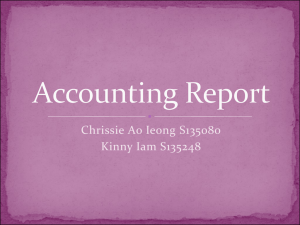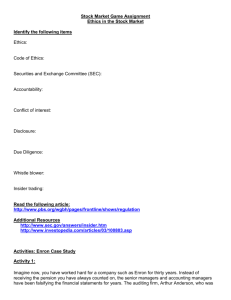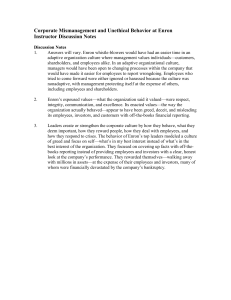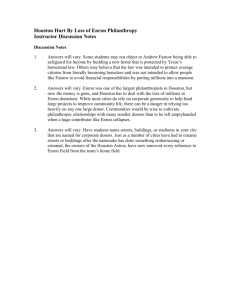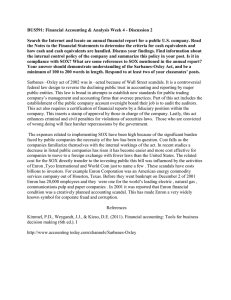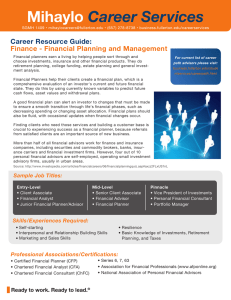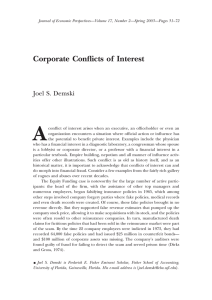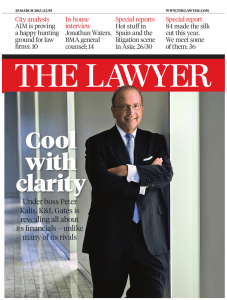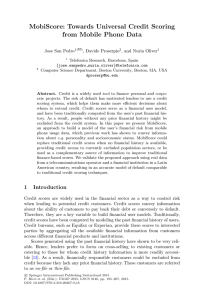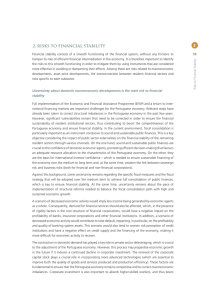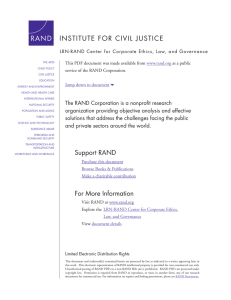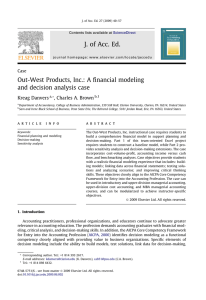Enron et al.––a comment Joel S. Demski *
advertisement
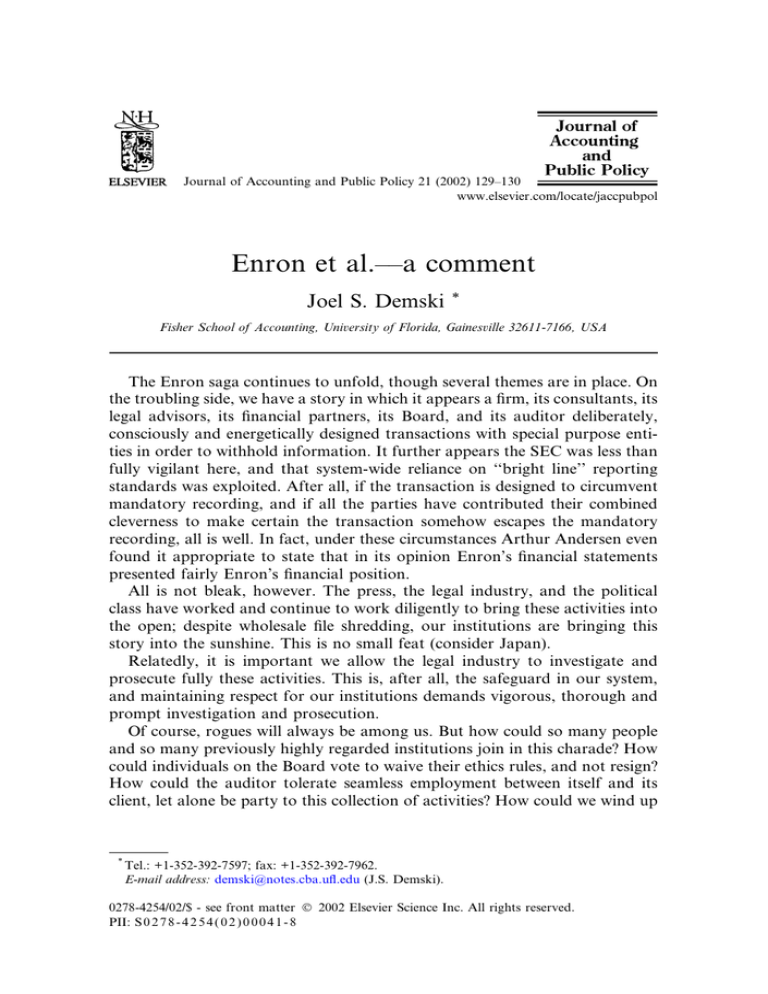
Journal of Accounting and Public Policy 21 (2002) 129–130 www.elsevier.com/locate/jaccpubpol Enron et al.––a comment Joel S. Demski * Fisher School of Accounting, University of Florida, Gainesville 32611-7166, USA The Enron saga continues to unfold, though several themes are in place. On the troubling side, we have a story in which it appears a firm, its consultants, its legal advisors, its financial partners, its Board, and its auditor deliberately, consciously and energetically designed transactions with special purpose entities in order to withhold information. It further appears the SEC was less than fully vigilant here, and that system-wide reliance on ‘‘bright line’’ reporting standards was exploited. After all, if the transaction is designed to circumvent mandatory recording, and if all the parties have contributed their combined cleverness to make certain the transaction somehow escapes the mandatory recording, all is well. In fact, under these circumstances Arthur Andersen even found it appropriate to state that in its opinion Enron’s financial statements presented fairly Enron’s financial position. All is not bleak, however. The press, the legal industry, and the political class have worked and continue to work diligently to bring these activities into the open; despite wholesale file shredding, our institutions are bringing this story into the sunshine. This is no small feat (consider Japan). Relatedly, it is important we allow the legal industry to investigate and prosecute fully these activities. This is, after all, the safeguard in our system, and maintaining respect for our institutions demands vigorous, thorough and prompt investigation and prosecution. Of course, rogues will always be among us. But how could so many people and so many previously highly regarded institutions join in this charade? How could individuals on the Board vote to waive their ethics rules, and not resign? How could the auditor tolerate seamless employment between itself and its client, let alone be party to this collection of activities? How could we wind up * Tel.: +1-352-392-7597; fax: +1-352-392-7962. E-mail address: demski@notes.cba.ufl.edu (J.S. Demski). 0278-4254/02/$ - see front matter Ó 2002 Elsevier Science Inc. All rights reserved. PII: S 0 2 7 8 - 4 2 5 4 ( 0 2 ) 0 0 0 4 1 - 8 130 J.S. Demski / Journal of Accounting and Public Policy 21 (2002) 129–130 with a paucity of Congressional investigators who have not been on the receiving end of Enron and Andersen’s largess? How do we continue to invite and tolerate intrusive behavior by auditing and consulting firms into business school activities, given these revelations? Where do we go from here? Two avenues strike me as important. One is to not rush to embrace new regulatory structure. These individuals and firms violated our trust. Institutions are in place to deal with such matters. To immediately alter the larger fabric of the regulatory structure would give credence to the self-serving explanation that this was a ‘‘system’’ problem. It was not. It is a straightforward case of deceit and dishonesty. The second is to recognize that the use of bright line reporting standards enables and encourages the design of transactions to circumvent those standards, and also aids and abets the auditor in being less than aggressive in insisting on reasonable disclosure. Stepping back from bright line standards (something the IASB seems well aware of) would force the auditor to pass judgment on the substance of the disclosure, rather than on whether there is a ‘‘controlling legal authority’’ that governs the reporting in question. Of course this would require a sea change among Congress, the SEC and the audit industry, just to name a few. Full, unfettered financial disclosure is impractical and inappropriate. Rather, a balance must be struck, a balance that is informed and vetted by trained, experienced, honorable and trustworthy professional auditors. We expect and can tolerate no less.
